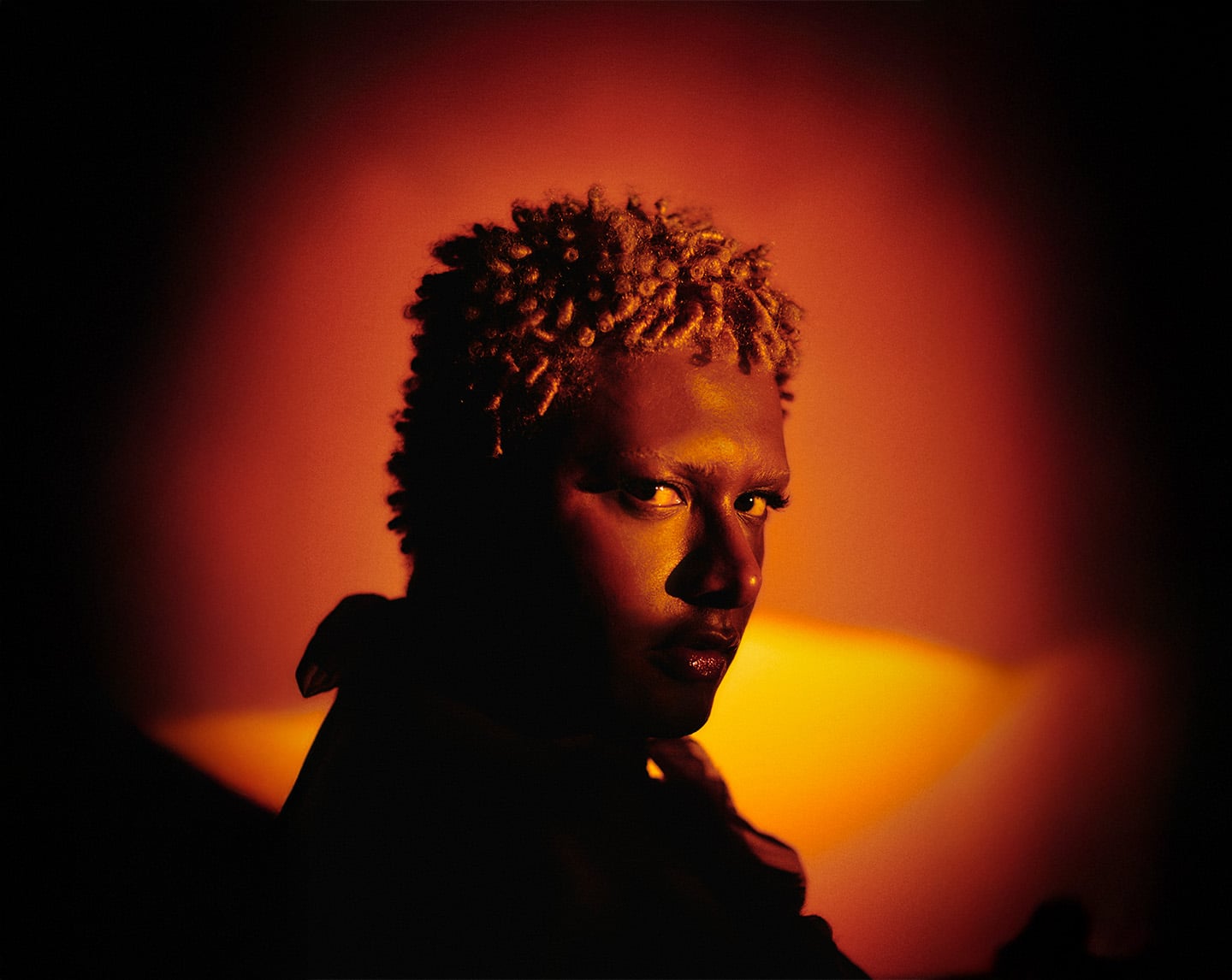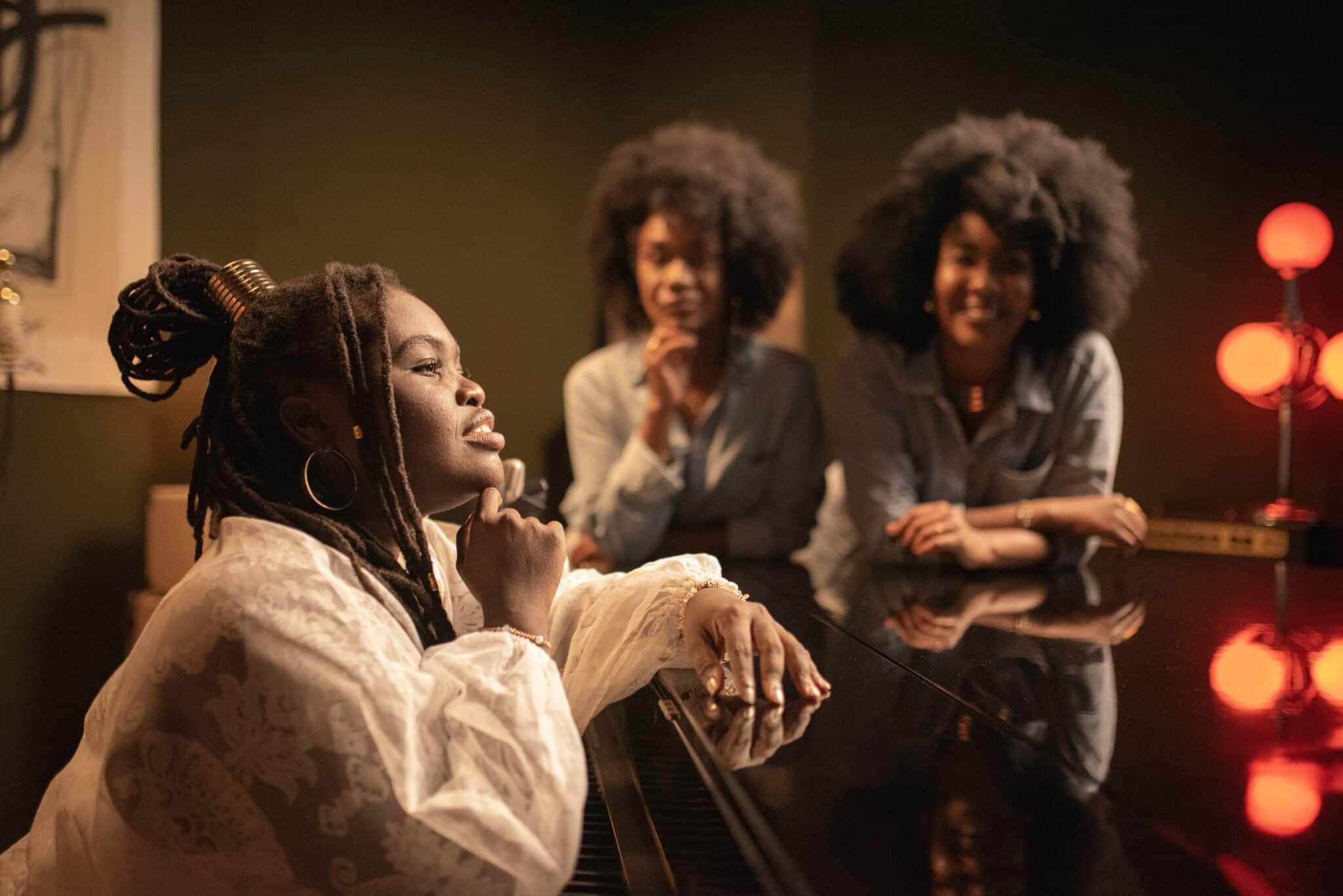Music Industry Talks: Cinq Music’s Ruben Santos on Being a Pioneer for Latin Trap
Welcome back to our editorial series for Music Industry Talks, where we cover topics related to the Latin Music Industry, and the movers and shakers behind it.
New year means new Music Industry Talks! This time around, we talked to Ruben Santos, VP of Artist and Repertoire (A&R) in Latin America for Cinq Music. Ruben has been instrumental in the boom of Latin Trap and has worked alongside Daddy Yankee, Natanael Cano, De La Ghetto, Natti Natasha and more artists.
Ruben spoke with mitú about how he started his career in music and where he sees Latin music going in the near future.
How did you start your career in music?
Ruben Santos: My career in music started back in 2000 at Penn State University, where I was part of a worldwide known fraternity by the name of Sigma Lambda Beta. We organized events for the student community. Once I graduated some friends and I coordinated our first concert with bachata artist, Toby Love. This concert turned out to be a huge success not only because it was our first major concert, but it also placed our names in bigger venues that we had no idea were aligning for us all.
Our second concert followed a year later. We did it with an artist that, back then, I connected with his movement by the name of De La Ghetto. His style of music sounded different to me. Being born and raised in Puerto Rico and listening to Reggaeton, when I moved to the United States to attend high school and college in Pennsylvania, I immediately embraced the hip hop culture. When I first heard of his music, I connected with it instantly because it felt like both worlds came together, from the hip-hop, to R&B and reggaeton sounds. The style of clothing was a game changer in so many ways for a young kid living in Puerto Rico to now living in Pennsylvania. So we decided to reach for the stars in hopes that he would agree to perform in our stage and he did alongside Alex Kyza. They were in complete disbelief that a group of young men put together such a well marketed and organized event. Quickly after we all became friends, which led them to ask me to start helping them with their daily business opportunities and the rest was history.
Read: Music Industry Talks: Behind The Rise of Latin R&B on Spotify
What do you consider to be your greatest accomplishments so far?
Ruben Santos: My greatest accomplishments in the music industry was gaining full respect from major pillars of the industry, also known as the engines behind the artists. Such as Raphy Pina from Pina Records, Elias De Leon from White Lion Records, Jimmy Humilde from Rancho Humilde, Robert Fernandez from Mr. 305, Carlos “Spiff TV” Suarez, and Egbert “Fino Como El Haze” Rosa to name a few.
What does it mean for you to be part of the rise of Reggaeton and Latin Trap in the music industry?
Ruben Santos: It’s a vision come true to say the least, especially for Latin Trap. It was a genre that was truly never accepted at the beginning. To give credit where credit is due, Latin Trap, Latin R&B, and Reggaeton joined forces heavy with De La Ghetto and Alex Kyza. I vividly remember back in 2010 trying to get Alex Kyza’s mix tape, “Traficando Man,” played in a radio station was impossible, as well as De La Ghetto’s “Boss of the Block” mixtape.
Radio stations were not fans of it at all simply because it was “too street.” We also brought the Latin Urban R&B, where it became more accepted. As we toured worldwide, we never let go of performing the Latin Trap anthems such as Botin De Guerra, Jala Gatillo, and Muero Por Los Míos. Today we have seen so much worldwide growth and acceptance of the genre.
Can you share any anecdotes involving artists and your career?
Ruben Santos: Early in my career working with De La Ghetto and Alex Kyza, I remember always talking about wild ideas back then such as creating merchandise, worldwide tours, bringing a camera guy everywhere in order to record our movement. Slowly but surely, these crazy ideas became a reality. We created the merchandise; we did two worldwide tours, YouTube and Instagram came along and we were able to move from MySpace to YouTube and upload our touring footages. This helped tremendously for us to connect with fans and grow the Latin trap movement.
While sitting down with Elias, Sinfónico, and Siggy when they presented me with their new artist Darell, I immediately told Barry, the President of Cinq that we needed to bring this project to Cinq. And now Darell is a globally recognized artist. His first album “La Verdadera Vuelta” is a certified Gold Album by the RIIA and it’s distributed by Cinq.
When Raphy Pina called me telling me he wanted to prove to Natti Natasha that he could move her music like no one else, I told him to count on me and we immediately began to work on her YouTube channel with the release of “Otra Cosa” with Daddy Yankee, and then we put together the music video of her most decorated release worldwide hit “Criminal” featuring Ozuna. Pina Records and Natti’s channel just recently received the Diamond Creator Award from YouTube. It’s a testament of the good work our team has done inside of the YouTube space.
But the one that I will always hold dear to my heart was being in the green room at The Tonight Show Starring Jimmy Fallon in New York City alone with Raymond “Daddy Yankee” Ayala on the anniversary of my mom’s passing and having him thank me for checking off one of his music bucket list items, which was the collaboration between Janet Jackson and himself. Knowing I did that was definitely a career highlight of mine.
Read: Music Industry Talks: The Rise of Regional Mexican and Female-Led Latin Music Stations in Pandora
What can you tell us about your work with Cinq Music?
Ruben Santos: Working for Cinq Music was truly destiny at its finest. Barry Daffurn and I crossed paths in Puerto Rico in 2016, after my departure from music from 2012 – 2016. It was all thanks to Siggy Vasquez for asking me to come to the studio and help him negotiate a project with Barry since I was fluent in English. Barry and I connected and after many conversations about what his vision was for the brand, I felt I could help bring that vision to fruition. Fast forward to 2021 and we’ve been able to accomplish things that major labels can’t even fathom. Working at Cinq Music is a fun environment. I try to always enjoy the time working with the team. We all feel like we are a family, but when it is time to get serious and get things done, I will put my team against anyone in the industry.
Where do you see Latin music in the next 5-10 years?
Ruben Santos: As Latin Music continues to embark deeper into more territories worldwide, I see a fusion coming with other genres across the world, such as Guaracha, K-Pop, Afro-beats, Punjabi, among others.
Any advice for singers that want to make a name for themselves in the Latin music industry?
Ruben Santos: First and foremost, my advice will be to learn the business side of the music industry. I like when an artist writes his/her own music with feelings and is able to tell a story. Is it very important to deliver a story that allows fans to instantly connect with the overall production from lyrics to the beat.




